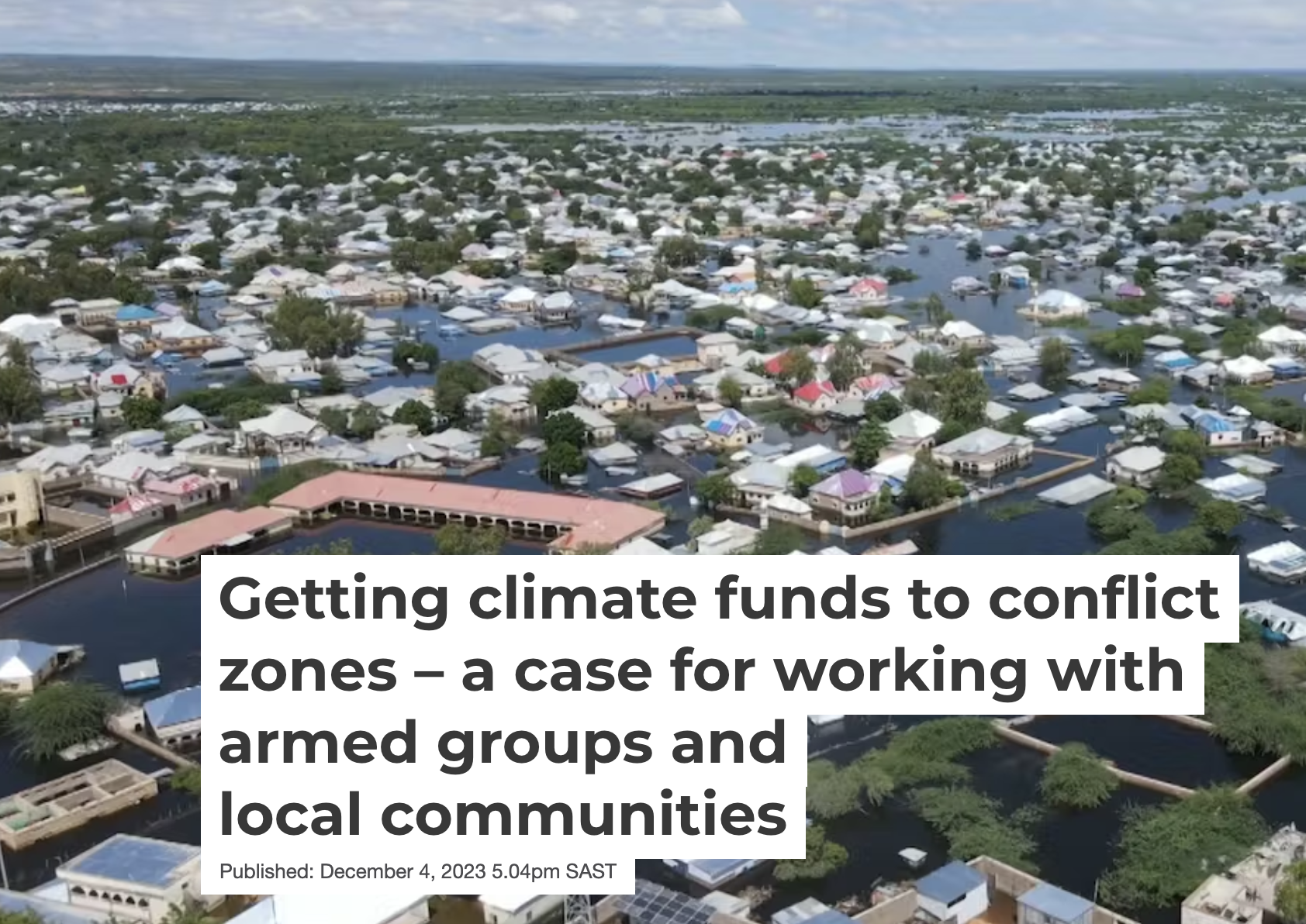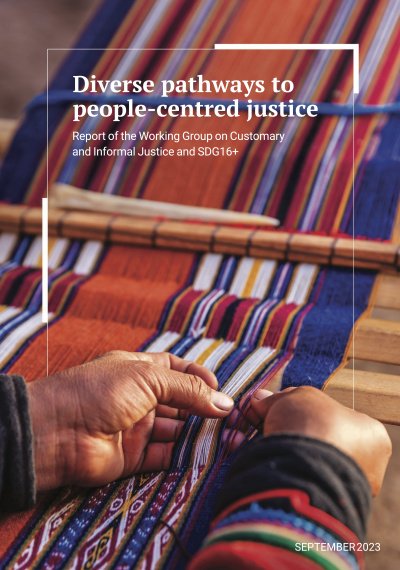Reports and articles

Transferring climate funds to conflict zones
Conflict-ridden and fragile countries are among the most vulnerable to climate change and least prepared to deal with it. They are largely excluded from climate adaptation programmes and funding. This article charts a path forward on how to address climate adaptation in conflict zones.

Resist, negotiate, submit? civilian agency and jihadism in Central Mali
This paper examines life under jihadist groups like JNIM in Mali, looking at the different survival strategies civilians employ.

Climate adaptation in no-man's land: bridging the conflict-climate gap
This paper examines climate change and armed groups, specifically the failure the address climate adaptation in areas beyond state control.

The Gaza effect: how the Israel-Hamas war is shaping armed group behavior and the prospects of engagement
This rapid analysis look at the impact of the the Israel-Hamas war on the behaviour of armed groups, and constraints on engaging with them

Citizens without states: the implications of non-recognition for people in de facto states
This paper examine the impact of non-recognition of de facto authorities on the people living in these territories. Arguing that the negative social, economic and well being impacts are profound, it urges for a re-think approaches to de facto authority.

Diverse pathways to people-centred justice
Globally, most people do not resort to formal justice systems to address their justice problems. Rather, they rely on diverse pathways to justice often referred to collectively as “customary and informal justice.” Published by IDLO on behalf of the Working Group on CIJ and SDG16+, of which the Centre is a member, this report highlights the need for more people-centered approaches to justice.

Playing the long game: exploring the relationship between Al-Shabab and civilians in areas beyond state control
Based on extensive research in Al-Shabab controlled areas of Somalia, this paper explores dynamics between Al-Shabab and those who live under their control.

Taliban arms management practices
This paper argues that we should not see ‘political’ and ‘criminal’ groups as separate categories. Instead, we should envision a spectrum of motives and practices across all armed groups, regardless of how they are labelled.

Crime and communities: life under criminal group control
This paper argues that we should not see ‘political’ and ‘criminal’ groups as separate categories. Instead, we should envision a spectrum of motives and practices across all armed groups, regardless of how they are labelled.

Understanding agency in civilian-armed group interactions
This joint paper with ODI explores what we know (and what we don’t) about how ordinary people engage with armed groups.
